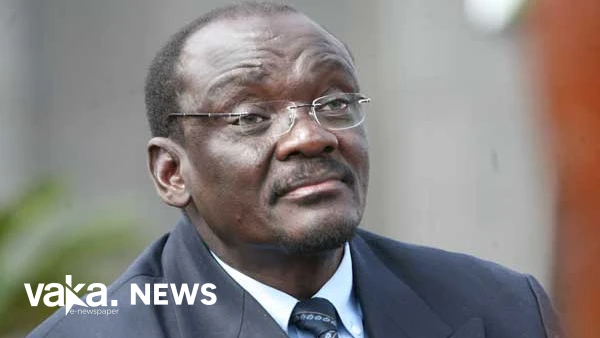Our roads a nightmare: Mohadi
- Category: General

- By Dion Kajokoto
VICE-PRESIDENT Kembo Mohadi has described navigating Zimbabwe and Africa's highways as a nightmare, causing logistical turmoil for travelers. This has resulted in dishonest companies taking advantage of the situation by overcharging and stifling trade, Mohadi said yesterday while officially opening the Connect Africa Symposium at the 64th Zimbabwe International Trade Fair (ZITF) in Bulawayo. Mohadi stated that, despite Africa's abundant natural resources, interregional trade is experiencing problems such as decaying infrastructure, which includes bad roads and limited air and maritime links.
"Poor infrastructure has frequently caused logistical nightmares for our people," he stated. "For example, some unscrupulous businesspeople have taken advantage of the weak road network to overcharge and impede the flow of products and services. "Relatedly, complex regulations and bureaucratic red tape have also created hurdles for business, thus discouraging investment." The Vice President advised African nations to capitalise on their advantage of having minerals and other important resources by embracing value-added activities. "It is widely recognized that value addition and subsequent beneficiation increase the market value of items. Value-addition also gives us a competitive advantage through regional cooperation," he said.
"A recent statistics report published in 2023 revealed that approximately 12% of the world's population lives in extreme poverty, with Africa accounting for 10% of the wretched lot. "Despite worldwide poverty reduction projections, Africa is expected to remain the poorest area. This requires determined action if we are to improve Africa's situation, as projected by the figures I have just presented." Mohadi said that in order for Africa to progress, small companies, particularly those owned by women and youth, must be empowered. Small enterprises are today Africa's largest employers, fueling many of the continent's economies.
He also encourages African governments to embrace digitisation in order to tear down trade obstacles and create a borderless marketplace for African companies, cargo, and consumers. "We also need to invest in skills development to equip Africa's workforce with the requisite 21st century skills and knowledge, which are critical to deal with the contemporary challenges we face as integral to unlocking Africa's competitiveness potential," he went on to say.






